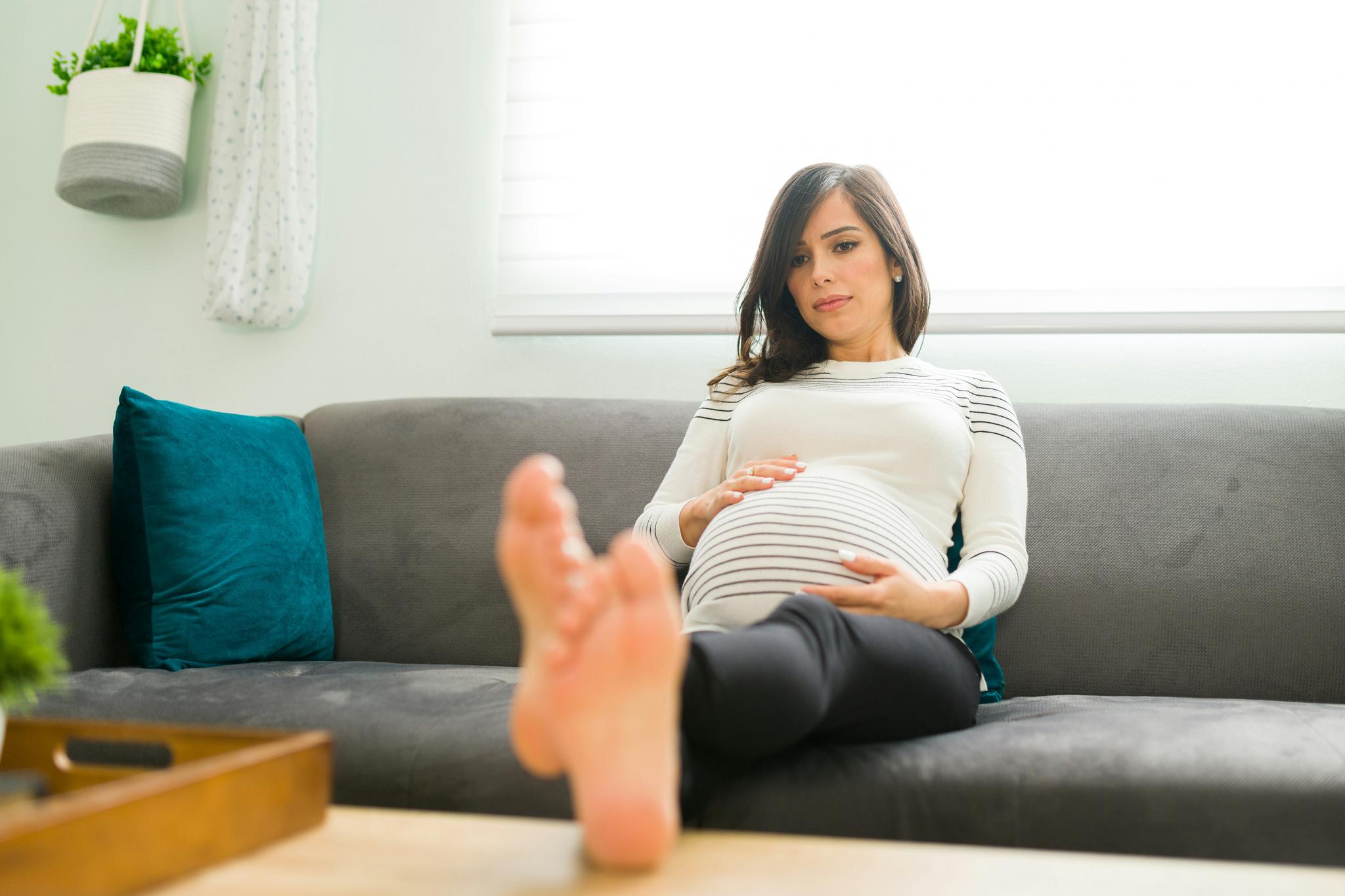Edema and Swelling
Last updated
First published

During pregnancy, swelling and water in the body are widespread and affect most pregnant women. It happens mainly in late pregnancy or the summer when it is hot.
Swelling is also called edema and is caused by the body holding more fluid and the uterus putting more and more pressure on the blood vessels in the legs, which are responsible for carrying the blood back to the heart.
The skin feels tense
If you have swelling and water in the body, it will be visible to the naked eye and be felt because it both fills and tenses the skin.
Water in the body and swelling occurs because:
The uterus presses on the large blood vessels, making it difficult for the blood to flow back
The hormone progesterone causes ineffective venous
Hormone production valves change and cause water to accumulate in the fat depots
It is usually worst in the feet, toes, and lower legs but can also quickly occur on the hands, fingers, and face.
Treatment of swelling and edema
You cannot receive medical treatment for swelling and edema during pregnancy. It is also not recommended to use diuretics.
However, you can remedy this by:
Avoid standing up for extended periods
Lying or sitting with your legs high
Avoid sitting with your legs crossed
Wear support stockings
Wear shoes with a good fit and support
Exercises as it increases blood circulation.
Once you have given birth and the pregnancy is over, the pressure from the uterus disappears, just as hormone production will return to normal. The liquid will therefore evaporate again after a few days.
If you have a lot of fluid in your body during pregnancy, you can try using acupuncture to reduce the pain from the swelling.
Be aware
Swelling is widespread during pregnancy, but it can also be a symptom of more severe conditions where it is necessary to seek medical or hospitalization.
Blood clot in the calf
If you get swelling in your legs, feet, or calf, it may signify a blood clot. The swelling is often combined with soreness or redness. If you get these symptoms, you should contact your doctor as soon as possible.
Pregnancy poisoning
If the swellings occur in the body over a brief period and are at the same time very prominent, it can, in some cases, be a sign of pregnancy poisoning. It only occurs after the 20th week of pregnancy. If you get the symptoms, see a doctor.
In most cases, swelling and edema are just a natural part of pregnancy. If you have the slightest doubt or are worried about the swelling, you can always contact your doctor.
